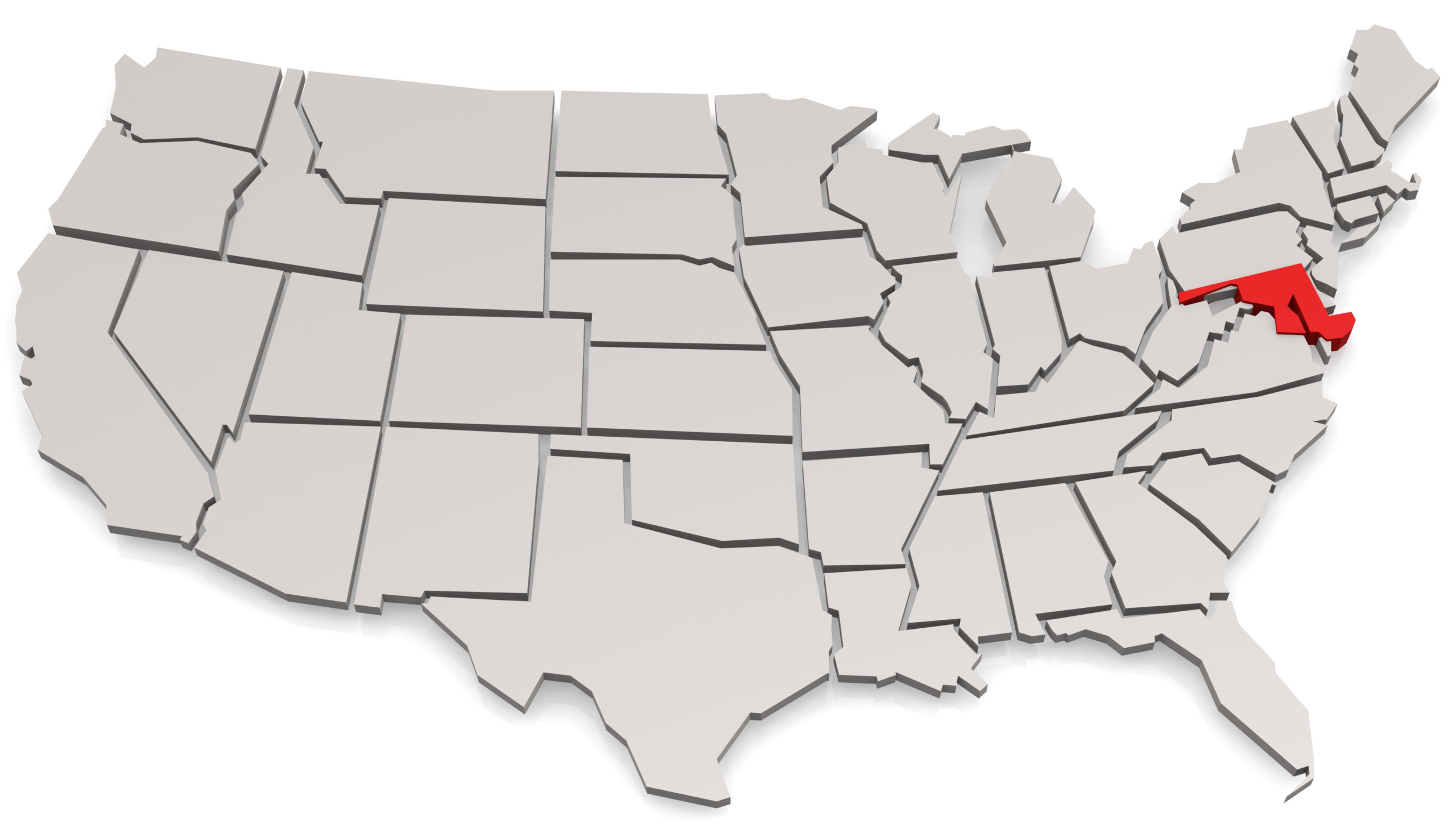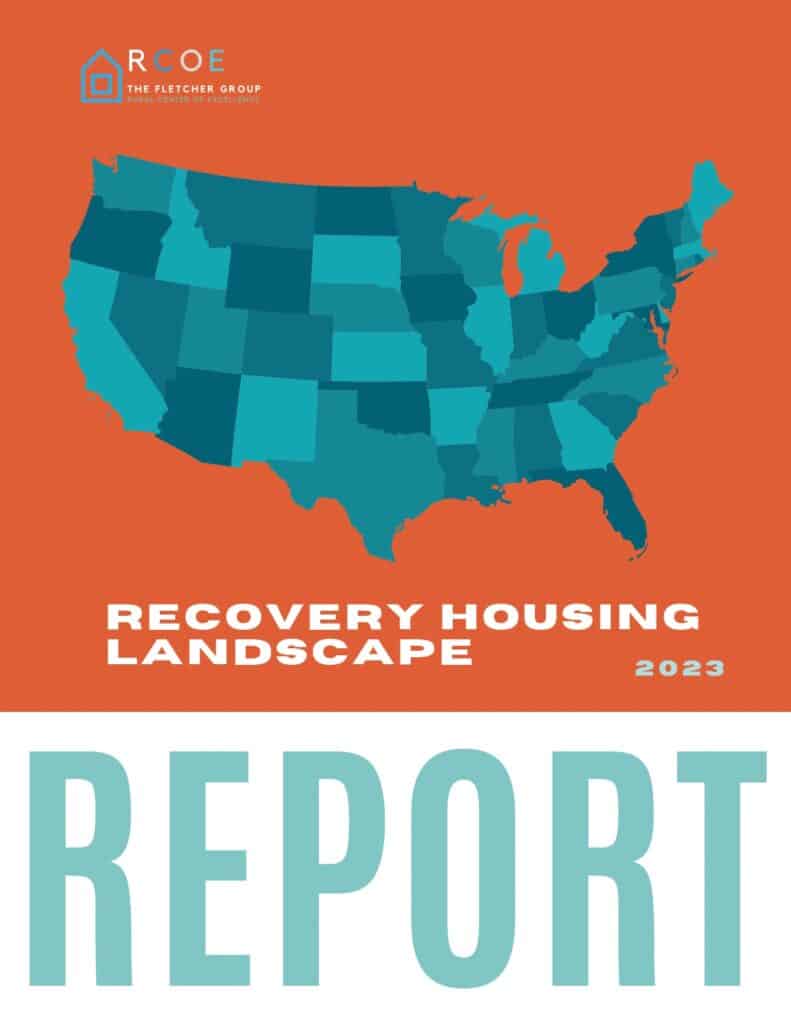
Maryland State Laws, Policies and Funding
RH terminology used by the Maryland Department of Health (MDH), Behavioral Health Administration (BHA) “A ‘recovery residence’ means a service that provides alcohol-free and illicit drug-free housing to individuals with substance-related disorders or addictive disorders or co-occurring mental health and substance-related disorders or addictive disorders.”
https://health.maryland.gov/bha/Pages/Recovery-Residences.aspx
Accreditation, Certification, and State Licensing Requirement: Certification required for state funding, to be listed on the state registry, and to receive a referral to state-funded placements (Building Recovery: State Policy Guide for Supporting Recovery Housing, 2022).
RH Law(s): HB869 Recovery Residence Residential Rights Protection Act (2017) Requiring, beginning November 1, 2017, a behavioral health program or specified health professional, when referring an individual to receive services at a recovery residence, to provide the individual with a list of certified recovery residences operating in the State and information on where specified services may be obtained; and requiring, on or before November 1, 2017, the Department of Health and Mental Hygiene to publish a specified list on its Web site.
HB 1411 “Health – Recovery Residences – Certification” Requiring the Department of Health and Mental Hygiene to approve a credentialing entity to develop and administer a certification process for recovery residences; requiring the certification entity to establish specified requirements and processes, conduct a specified inspection, and issue a specified certificate of compliance; providing that a certificate of compliance is valid for 1 year; requiring, on or before November 1, 2017, the Department to publish on its Web site a list of each credentialing entity and its contact information; etc.
https://mgaleg.maryland.gov/mgawebsite/Legislation/Details/HB1411?ys=2016rs
RH Legislation: None/unknown
Regulations: None/unknown
SABG Program: The “Planned Priority Areas” documents for your state’s Substance Abuse Prevention and Treatment Block Grant (SABG) program and Community Mental Health Services Block Grant (MHBG) program do not specifically mention recovery housing as a priority, nor do they list recovery support services as an allowable activity. To learn more about specific recovery housing activities that are eligible for funding through these grant programs, please reach out to your state’s Single State Agency (SSA) that’s responsible for administering these funds by visiting https://health.maryland.gov/springgrove/Pages/home.aspx
SOR Program: Your state’s Department of Health and Social Services (DHSS) has previously funded recovery activities using State Opioid Response (SOR) funds. To learn more about specific recovery housing activities that are eligible for funding through this grant program, please reach out to your state’s Single State Agency (SSA) that’s responsible for administering these funds by visiting https://health.maryland.gov/springgrove/Pages/home.aspx
Medicaid Funding: Nothing in the state Medicaid plan suggests direct support for RH, however, certain covered activities could evolve to be provided in RH settings include counseling and case management.
https://health.maryland.gov/regs/Pages/10-09-80-Community-based-Substance-Use-Disorder-Services-(MEDICAL-CARE-PROGRAMS)—1013-9428.aspx
NARR Affiliate Status: NARR status under development
Housing Assistance Funding: https://dhcd.maryland.gov/Pages/default.aspx
Directory/Registry:
Certified Recovery Residences
https://health.maryland.gov/bha/Pages/Recovery-Residences.aspx
Maryland Funders
The Easton Village Charitable Fund/Mid-Shore Community Foundation
The Easton Village Charitable Fund is an endowed fund managed by the Mid-Shore Community Foundation. A small percentage of price at the first-time sale of a lot or house funds the endowment, which currently exceeds $100,000.00. The fund also receives direct donations from individual Easton Village and Talbot County residents. The Mid-Shore Community Foundation is one of the largest grant makers in the region and through its many funds, the Foundation is able to support a variety of programs. Grants are awarded through an open application process, and through donor advised funds – funds established for specific philanthropic purposes, that do not accept requests.
Regions: The Mid-Shore Community Foundation supports organizations in the mid-shore region of Maryland including Caroline, Dorchester, Kent, Queen Anne’s, and Talbot Counties. Talbot, Dorchester, Caroline, and Kent counties are classified as rural by HRSA.
Issues Supported: The foundation supports a wide array of topics, with a particular focus on children.
Grant Process and Application: There is one grant cycle per year and the deadline for submission is October 1st.
Recovery and Supportive Housing Grantee Example: The Gratitude House in Easton Maryland provides safe, affordable and supportive housing for all people recovering from a substance use disorder. The houses are for men recovering from a substance use disorder but offer a family centered structure that allows and encourages a setting where residents can continue to build relationships with their families and even have children stay overnight.
Maryland Opioid Settlement Funds
Total Settlement Funds in Maryland
- $395 million
Fund Distribution
- 15% to the State through Opioid Restitution Fund
- 60% to the Abatement Accounts Fund
- 25% to local governments
Timeline
- Funds from three distributors will be paid over 18 years
- Funds from Johnson & Johnson will be paid over 9 years
- Payments were expected to begin in April 2022
- State and local governments were expected to begin receiving funds in the second quarter of 2022
Application Process
- Not established
Spending So Far
- NA
Key Contacts
- Office of the Attorney General Brian E. Frosh, 410-576-6300
Key Links
- Maryland State Subdivision Agreement
How About Your County?
To get a quick overview of the resources available in your county, including gaps that may need to be addressed, visit the Recovery Ecosystem Index Map developed through a partnership between the Fletcher Group Rural Center of Excellence, the NORC Walsh Center at the University of Chicago, and East Tennessee State University.
Need More Info?

A year in the making by a staff of ten, the Fletcher Group’s 82-page Recovery Housing Landscape Report provides an in-depth overview of the most recent laws, policies, and funding affecting recovery housing. You’ll find sections devoted to state laws, SAMHSA funding, Medicaid, corrections, and housing assistance plus numerous links to valuable resources and official documents. To see the complete downloadable report, click the image to the left.
This web page is supported by the Health Resources and Services Administration (HRSA) of the U.S. Department of Health and Human Services (HHS) as part of an award totaling $13.7 million with 0% financed with non-governmental sources. The contents are those of the author(s) and do not necessarily represent the official views of, nor an endorsement, by HRSA, HHS, or the U.S. Government.